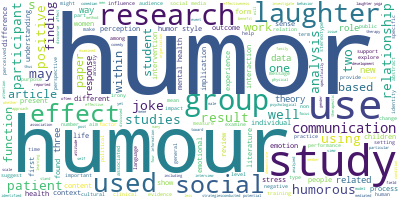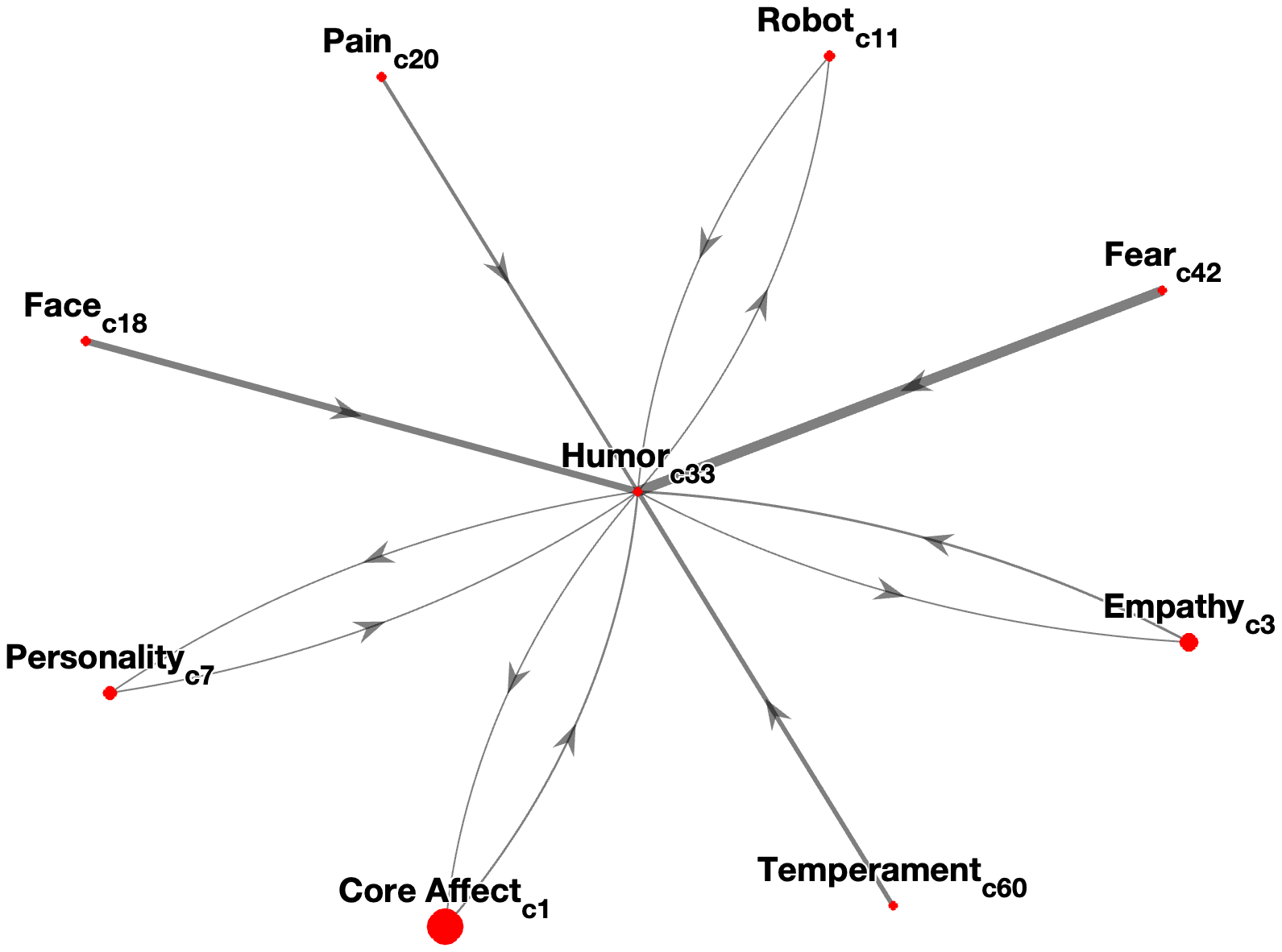Community 33: Humor
Key words: Humor, laughter

Interconnectedness

Missed connections
Community pairs with high citation-based distance but low semantic distance
From |
To |
Diff. Score |
Citation-Based Distance (Z) |
Semantic Distance (Z) |
|---|---|---|---|---|
|
2.77 |
1.28 |
-1.49 | ||
|
2.71 |
1.29 |
-1.42 | ||
|
2.61 |
1.28 |
-1.33 | ||
|
2.59 |
1.29 |
-1.3 | ||
|
2.54 |
1.29 |
-1.25 |
Central articles
-
Humorous communication: Finding a place for humor in communication research.
O. Lynch. 2002.
-
The Use of Humor in Serious Mental Illness: A Review
M. Gelkopf. 2011. Evidence-based complementary and alternative medicine : eCAM
-
Individual differences in the communication of humorous messages
S. Booth-Butterfield, M. Booth-Butterfield. 1991.
-
Laughter in Bill Clinton’s My life (2004) interviews
D. O’connell, S. Kowal. 2005.
-
Cognitive Processes in Humor Appreciation
J. Suls. 1983.
-
The purpose and function of humour in health, health care and nursing: a narrative review.
M. McCreaddie, S. Wiggins. 2008. Journal of advanced nursing
-
Positive and Negative Styles of Humor in Communication: Evidence for the Importance of Considering Both Styles
A. Cann, Christine L. Zapata, Heather B. Davis. 2009.
-
The therapeutic value of laughter in medicine.
R. Mora-Ripoll. 2010. Alternative therapies in health and medicine
-
Rawls, Fraser, redistribution, recognition and The World Summit on the Information Society
Richard Collins. 2007.
-
Effectiveness of humor intervention for patients with schizophrenia: a randomized controlled trial.
C. Cai, Liping Yu, Lan Rong, Hanling Zhong. 2014. Journal of psychiatric research